Join us for a Summer School on environmental and computational neuroscience!
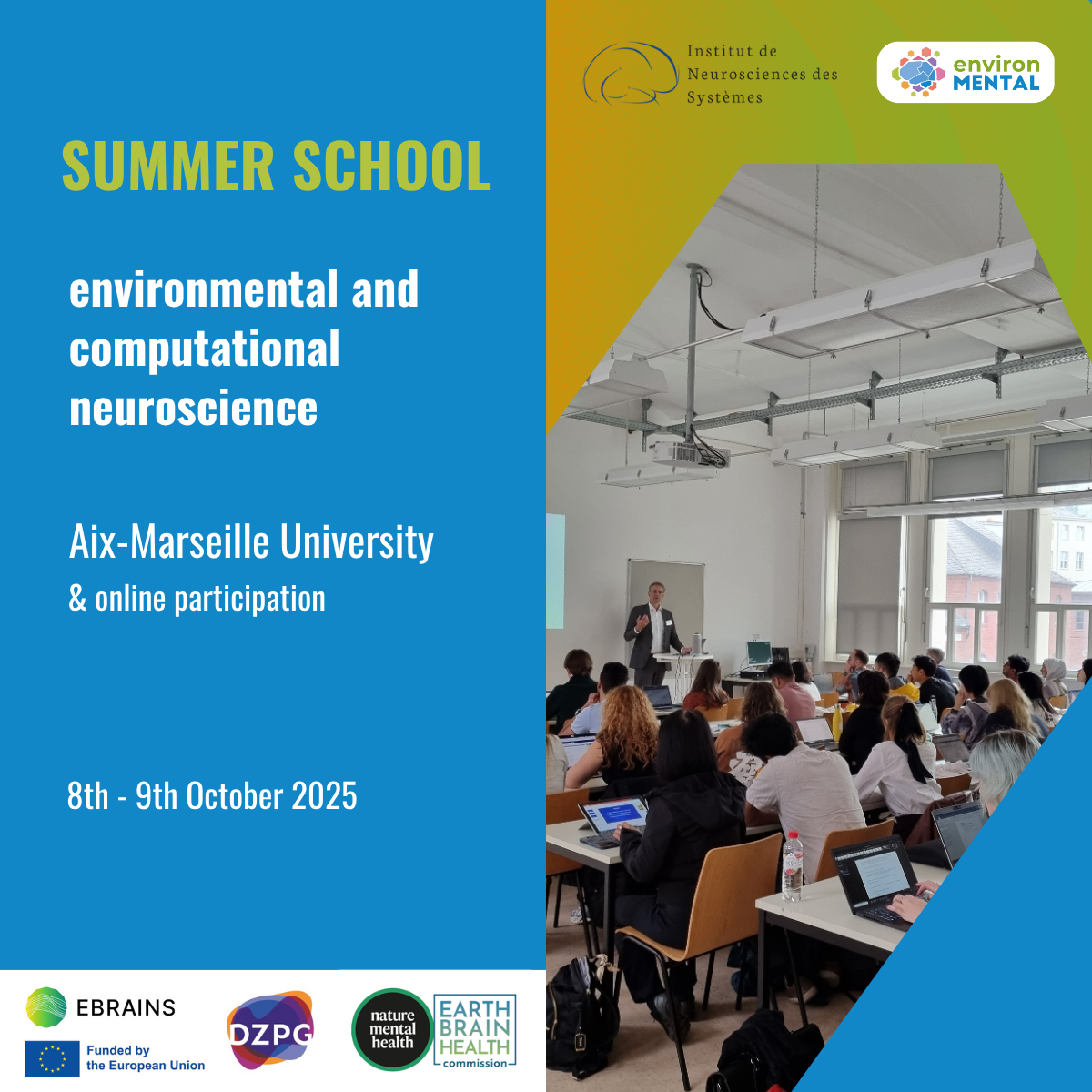
Are you a student or early career researcher interested in gaining a greater understanding of the relationship between the environment and neuroscience? Then join us for the Summer School on environmental and computational neuroscience, organised by the the Horizon Europe Project ‘environMENTAL’, Institut de Neurosciences des Systèmes at Aix-Marseille University, the German Centre for Mental Health (DZPG), and the Nature ‘Earth Brain Health Commission.’
The summer school will take place at Campus Timone, Faculté des Sciences Médicales et Paramédicales d’Aix-Marseille Université, Aix-Marseille University, France from 8. – 9. October 2025.
The Summer School will enable participants to apply cutting edge research to investigate the relation between environment, brain and mental health, ranging from geospatial data, digital mental health, virtual brain modelling, biostatistical methods, Earth observation, and Virtual Reality and large-language models.
Event Details:
Date: 8th – 9th October 2025
Location: Grisoli amphitheater
Campus Timone
Faculté des Sciences Médicales et Paramédicales d’Aix-Marseille Université
27 Bd Jean Moulin
13005 Marseille
Fee: Free event
Hybrid: Online participation possible
Topics:
- Integration of geospatial data with health data
- Digital mental health research
- Virtual Brain Modelling
- Digital Twin Brain
- Biostatistical methods
- Earth observation
Speakers:
- Prof. Andre Marquand, Principal investigator at Donders Centre for Cognitive Neuroimaging, Principal investigator at Donders Institute for Brain, Cognition and Behaviour, Radboud University Medical Centre, Nijmegen, The Netherlands
- Dr. Yunman Xia, Center for Population Neuroscience, Institute of Science and Technology for Brain-Inspired Intelligence, Fudan University
- Dr. Spase Petkoski, Institut de Neurosciences des Systèmes, Aix-Marseille University, Marseille, France
- Dr. George Ogoh, School of Computer Science, University of Nottingham, England
- Dr. Marcel Jentsch, Berlin Institute of Health, Charité Universitätsmedizin, Berlin, Germany
- Prof. Dr. Viktor Jirsa, Institut de Neurosciences des Systèmes, Aix-Marseille University, Marseille, France
- Dr. Elli Polemiti, Medical Faculty, University of Heidelberg, Germany
- Prof. Gunter Schumann, Centre for Population Neuroscience and Stratified Medicine (PONS) at ISTBI, Fudan University, Shanghai, China and Charité University Medicine, Berlin, Germany
- Prof. Mel Slater, Department of Clinical Psychology, University of Barcelona, Barcelona, Spain
- Prof. Pierpaolo Sorrentino, Institut de Neurosciences des Systèmes, Aix-Marseille University, Marseille, France
- Dr. Sven Twardziok, Berlin Institute of Health, Charité Universitätsmedizin, Berlin, Germany
Agenda:
Timings subject to change.
Wednesday 8th October
Morning
9:30 – MORNING COFFEE
10:00 –
Introduction to Summer School by Prof. Gunter Schumann and Prof. Dr. Viktor Jirsa
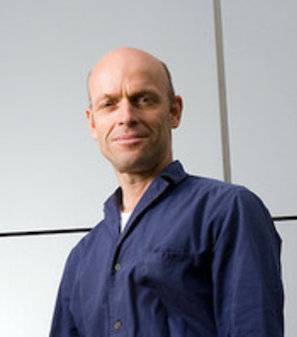
Prof. Gunter Schumann, Distinguished Professor and Director, Centre for Population Neuroscience and Stratified Medicine (PONS) at ISTBI, Fudan University, Shanghai, China and Charité University Medicine Berlin, Berlin Germany
Prof. Gunter Schumann MD PhD, Distinguished Professor and Director, Centre for Population
Neuroscience and Stratified Medicine (PONS) at ISTBI, Fudan University, Shanghai and Charite University Medicine Berlin is an internationally renowned scientist who is shaping and coordinating European and global mental health research on prediction and neurobiological characterisation of mental disorders. In his research programmes he develops and applies population neuroscience and precision medicine in Europe and globally. His innovative approaches have led to the identification of disease mechanisms and biomarkers for prediction and stratification. They have been published in leading journals, including in Nature, Nature Medicine and Science. Professor Schumann conceived and is coordinating the environMENTAL Horizon Europe project aimed at reducing the impact of major environmental challenges on mental health. He also leads the IMAGEN project, a ground breaking imaging genetics study of 18 European partners initially funded by the European Commission, the STRATIFY study, funded by the European Research Council (ERC), and the Indian cVEDA study. He directs the Zhangjiang International Biobank at ISTBI, Fudan University. He is a recipient of prestigious awards, including an Advanced Grant of the ERC, a Humboldt Prize of the German Alexander von Humboldt Foundation. He received a Chinese National 1000 talent award and a NSFC Research Award for International Senior Scientists. He has attracted over 40 million Euro in grant funding.
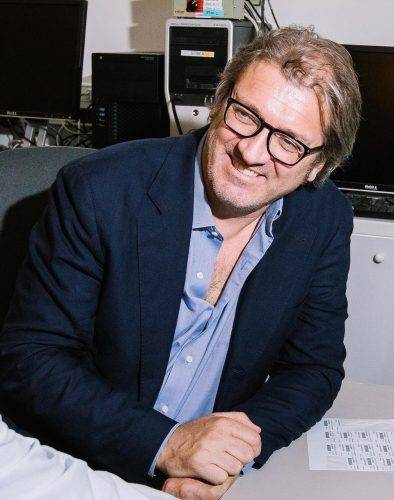
Prof. Viktor Jirsa, Director of the Inserm Institut de Neurosciences des Systèmes at Aix-Marseille-Université in Marseille, France
Viktor Jirsa is Director of the Inserm Institut de Neurosciences des Systèmes at Aix-Marseille-Université in Marseille, France. Dr. Jirsa received his PhD in 1996 in Theoretical Physics and has since then contributed to the field of Theoretical Neuroscience, in particular through the development of large-scale brain network models based on realistic connectivity. His work has been foundational for network science in brain medicine and the use of personalized virtual brain models in epilepsy. He is Scientific Director of the clinical trial EPINOV, evaluating the use of virtual brain technology in epilepsy surgery. Dr. Jirsa serves as Chief Science Officer of the European digital neuroscience infrastructure EBRAINS (https://ebrains.eu) and lead investigator in the Virtual Brain Twin Project (https://www.virtualbraintwin.eu/). Dr. Jirsa has been awarded several international prizes for his research including the first HBP Innovation prize (2021) and Grand Prix de Recherche en Provence (2018) and has published more than 160 scientific articles.
10:05 –
Integration of geospatial data with health data [individual laptops required] (Dr. Sven Twardziok, Dr. Marcel Jentsch, Dr. Elli Polemiti)

Dr. Sven Twardziok, Berlin Institute of Health (BIH) at Charité – Universitätsmedizin Berlin, Center of Digital Health
Sven Twardziok leads a data management team at the Berlin Institute of Health (BIH) at Charité – Universitätsmedizin Berlin, where he drives the development of robust data infrastructures to support biomedical research. With over 15 years of experience in managing and processing large-scale biological datasets across academia and industry, he specializes in making complex data systems more accessible and usable for researchers. His work is rooted in the FAIR principles—ensuring that data is Findable, Accessible, Interoperable, and Reusable—and he plays a pivotal role in shaping national and international data ecosystems. Dr. Twardziok is actively engaged in several strategic initiatives, including de.NBI, ELIXIR, DZPG, DZKJ, NCT, and MII, contributing to the advancement of data-driven science and collaborative research networks. His publications are listed at: https://scholar.google.com/citations?user=oGXcaOIAAAAJ
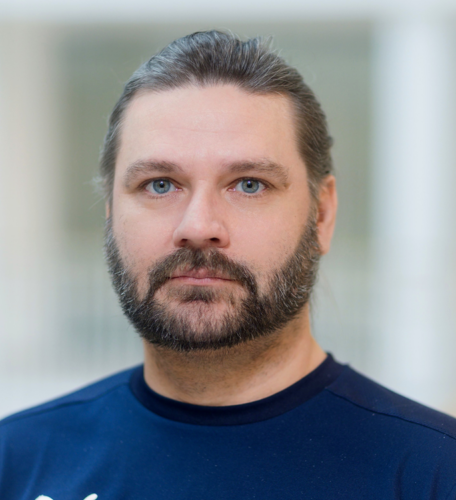
Dr. Marcel Jentsch, Dr. rer. nat. Digital Health, Berlin Institute of Health, Charité University Medicine Berlin, Berlin, Germany
Marcel Jentsch received a Master of Science in Bioinformatics from the Department of Mathematics and Computer Science and Department of Biology, Chemistry, Pharmacy, Freie Universität Berlin, Germany in 2011, a Ph.D. (Dr. rer. nat.) at the Institute of Biology from the Technical University Darmstadt in 2019. He worked at Max-Planck Institute for Human Development and until 2010, at the Humbolt University Berlin at the Institute for Informatic in 2011. Between 2012 and 2013 he worked at the Charite on a navigation system for open liver resection. From 2013 till 2019 he has joint the group of Alexander Löwer at the Max-Delbruck Center that moved to the Technical University Darmstadt there I worked on the systems biology of the stress response. From 2020 to 2021 he worked as a full stack developer at Museum of Natural History, Berlin. In 2021 he returned to the Charite working for the Centre for Population Neuroscience and Stratified Medicine and the department of Digital Health at the Berlin Institute of Health. His career spans a wide range of research areas, from computational biology to clinical applications in surgical navigation and data management. His work as a developer has strengthened his expertise in data-driven solutions and digital infrastructures for biomedical research. This broad interdisciplinary experience bridge biology, medicine, and computer science in both academic and applied settings.
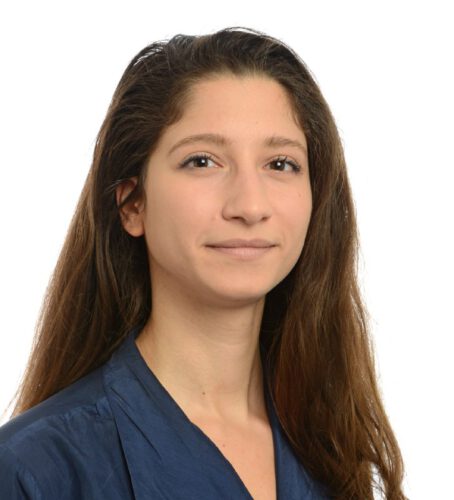
Dr. Elli Polemiti, Postdoctoral Research Fellow, Health Data Science Unit, Bioquant, Medical Faculty, University of Heidelberg, Germany
Elli Polemiti is an epidemiologist interested in understanding the impact of modifiable risk factors on chronic disease, focusing on lifestyle-related and environmental factors. She is currently conducting her postdoctoral research on the relationship between major environmental challenges caused by urbanisation, air pollution, climate and regional socioeconomic status and brain and mental health. She studied epidemiology at the London School of Hygiene and Tropical Medicine and did her Ph.D. in diabetes epidemiology at the German Institute of Human Nutrition Potsdam-Rehbrüke (DIfE) in collaboration with the University of Potsdam. Prior, she worked as a research associate in cancer epidemiology at Imperial College London.
11:30 – COFFEE BREAK
11:50 –
Understanding the brain in a changing environment: strategies, methods and results (Prof. Gunter Schumann)

Prof. Gunter Schumann, Distinguished Professor and Director, Centre for Population Neuroscience and Stratified Medicine (PONS) at ISTBI, Fudan University, Shanghai, China and Charité University Medicine Berlin, Berlin Germany
Prof. Gunter Schumann MD PhD, Distinguished Professor and Director, Centre for Population
Neuroscience and Stratified Medicine (PONS) at ISTBI, Fudan University, Shanghai and Charite University Medicine Berlin is an internationally renowned scientist who is shaping and coordinating European and global mental health research on prediction and neurobiological characterisation of mental disorders. In his research programmes he develops and applies population neuroscience and precision medicine in Europe and globally. His innovative approaches have led to the identification of disease mechanisms and biomarkers for prediction and stratification. They have been published in leading journals, including in Nature, Nature Medicine and Science. Professor Schumann conceived and is coordinating the environMENTAL Horizon Europe project aimed at reducing the impact of major environmental challenges on mental health. He also leads the IMAGEN project, a ground breaking imaging genetics study of 18 European partners initially funded by the European Commission, the STRATIFY study, funded by the European Research Council (ERC), and the Indian cVEDA study. He directs the Zhangjiang International Biobank at ISTBI, Fudan University. He is a recipient of prestigious awards, including an Advanced Grant of the ERC, a Humboldt Prize of the German Alexander von Humboldt Foundation. He received a Chinese National 1000 talent award and a NSFC Research Award for International Senior Scientists. He has attracted over 40 million Euro in grant funding.
12:50 – LUNCH BREAK
Afternoon
14:00 –
The Virtual Brain Modelling (Prof. Dr. Viktor Jirsa, Prof. Pierpaolo Sorrentino)

Prof. Viktor Jirsa, Director of the Inserm Institut de Neurosciences des Systèmes at Aix-Marseille-Université in Marseille, France
Viktor Jirsa is Director of the Inserm Institut de Neurosciences des Systèmes at Aix-Marseille-Université in Marseille, France. Dr. Jirsa received his PhD in 1996 in Theoretical Physics and has since then contributed to the field of Theoretical Neuroscience, in particular through the development of large-scale brain network models based on realistic connectivity. His work has been foundational for network science in brain medicine and the use of personalized virtual brain models in epilepsy. He is Scientific Director of the clinical trial EPINOV, evaluating the use of virtual brain technology in epilepsy surgery. Dr. Jirsa serves as Chief Science Officer of the European digital neuroscience infrastructure EBRAINS (https://ebrains.eu) and lead investigator in the Virtual Brain Twin Project (https://www.virtualbraintwin.eu/). Dr. Jirsa has been awarded several international prizes for his research including the first HBP Innovation prize (2021) and Grand Prix de Recherche en Provence (2018) and has published more than 160 scientific articles.
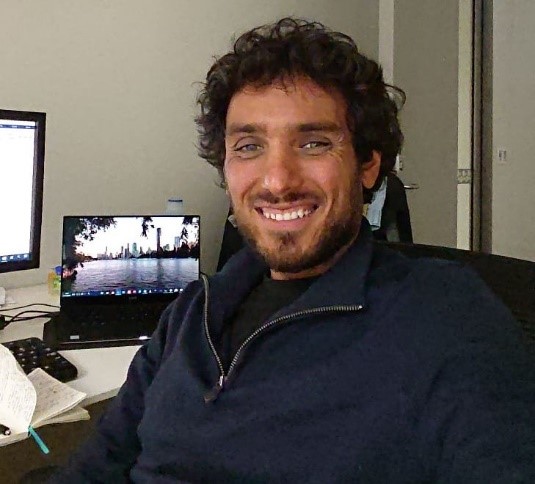
Prof. Pierpaolo Sorrentino, Principal Investigator, French National Institute of Health and Medical Research (INSERM)
Prof. Pierpaolo Sorrentino is a medical doctor and neurologist by training. He completed his residency in Neurology between Naples and Amsterdam, where he used magnetoencephalography (MEG) to study neurodegenerative diseases. He earned a Ph.D. in Telecommunication Engineering between Naples and Brisbane, focusing on brain signal processing—particularly MEG—and applying the framework of criticality to characterize brain dynamics.
After his Ph.D., he joined the Theoretical Neuroscience Group in Marseille as a postdoctoral researcher, where he worked on the modeling of large-scale brain data. Previously, he served as scientific director of the MEG facility at the University of Naples.
Currently, Prof. Sorrentino is a principal investigator at the French National Institute of Health and Medical Research (INSERM), in Marseille, and a tenured Associate Professor in Psychometrics at the University of Sassari, Italy. His research focuses on computational neuroscience, brain network modeling, and the development of personalized Virtual Brain Twins to improve diagnosis and therapy in neurological disorders.
15:30 – COFFEE BREAK
15:50 –
Simulation and assimilation of the digital human brain (Dr. Yunman Xia)
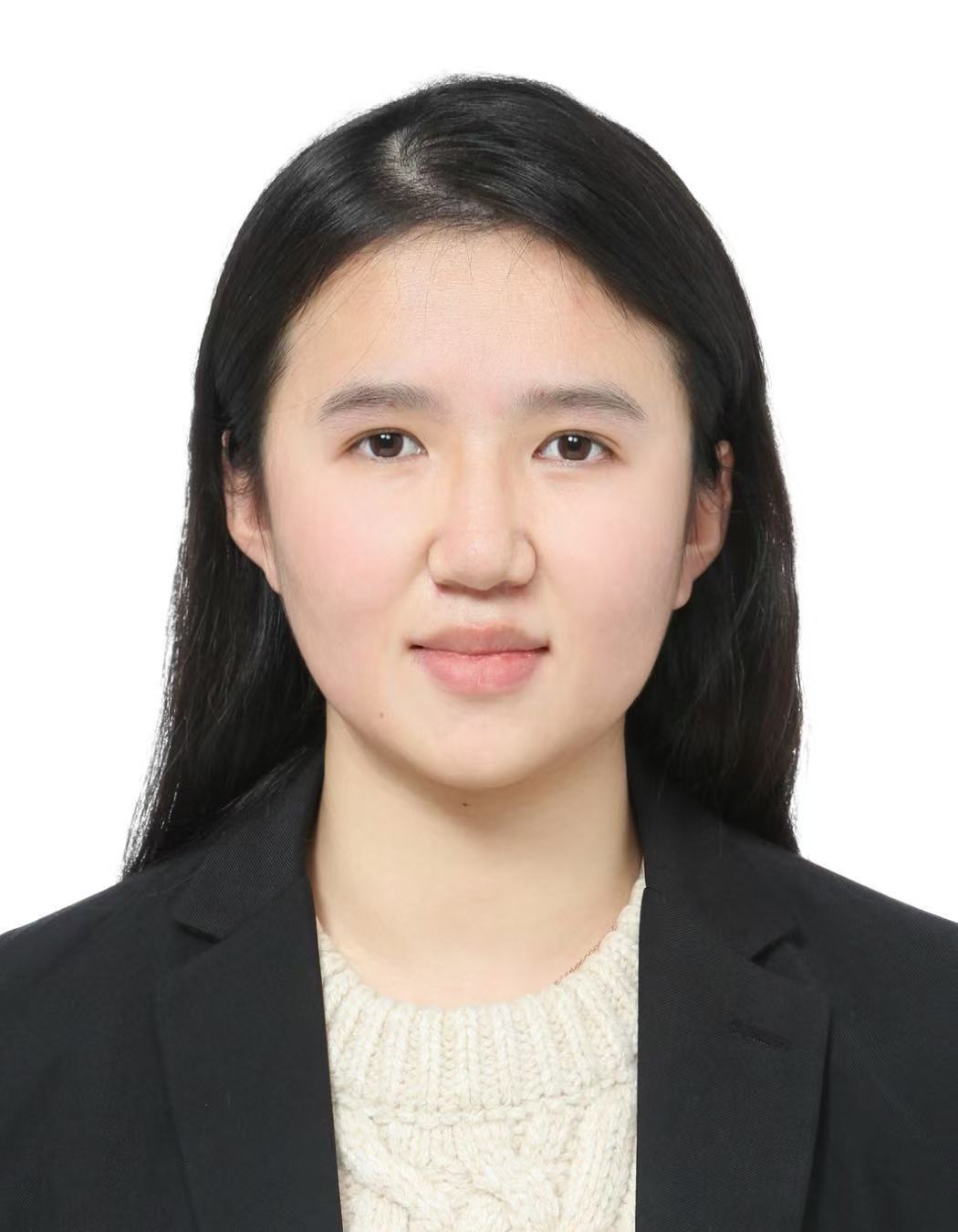
Dr. Yunman Xia, Postdoctoral Fellow, Center for Population Neuroscience, Institute of Science and Technology for Brain-Inspired Intelligence, Fudan University
The presenter is a Postdoctoral Fellow at the Center for Population Neuroscience, Institute of Science and Technology for Brain-Inspired Intelligence, Fudan University. She received her Ph.D. in Cognitive Neuroscience from the IDG/McGovern Institute for Brain Research at Beijing Normal University. Her current research focuses on the neural mechanisms of adolescent psychiatric disorders and their genetic and environmental risk factors, as well as potential interventions informed by computational brain modeling.
She has been awarded the Shanghai Super Postdoctoral Program and the Everest Young Scholar Program, and has received funding from the National Natural Science Foundation of China (Young Investigator Grant) and the China Postdoctoral Science Foundation.
16:50 – END OF DAY 1
Thursday 9th October
Morning
9:30 – MORNING COFFEE
10:00 –
Biostatistical methods (Prof. Andre Marquand)

Prof. Andre Marquand, Principal investigator at Donders Centre for Cognitive Neuroimaging, Principal investigator at Donders Institute for Brain, Cognition and Behaviour, Radboud University Medical Centre, Nijmegen, The Netherlands
Professor Andre Marquand leads the Predictive Clinical Research group at the Donders Institute for Brain, Cognition and Behaviour, Radboud University Medical Centre in the Netherlands. He is the recipient of multiple prestigious awards including a consolidator grant from the European Research Council and awards from the Dutch Institute for Scientific Research and the UK Wellcome Trust. His research focusses on the development of statistical and machine learning techniques and their application to large population-level biomedical data biomedical data, including neuroroimaing, real-time smartphone monitoring and environmental data. The aims of this research line are to better understand the heterogeneity underlying mental health conditions and to develop tools for predicting their course and outcome.
11:00 – COFFEE BREAK
11:20 –
Building blocks of TVB models [individual laptops required, EBRAINS account required] (Dr. Spase Petkoski)
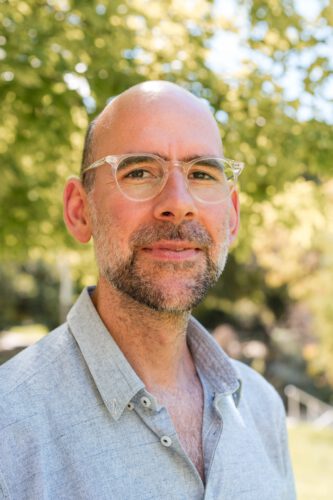
Dr. Spase Petkoski, Postdoctoral Research Fellow, Institut de Neurosciences des Systèmes, Aix-Marseille University, Marseille, France
Spase Petkoski obtained his doctorate in 2014 in Biomedical and Nonlinear Physics at Lancaster University in the UK.
After that, he worked as a postdoctoral researcher in Viktor Jirsa’s Theoretical Neuroscience Group at the Institute of Systems Neurosciences in Marseille. His research focus was on theoretical aspects of brain network models, in particular, how the connectome and its time delays affect brain activity in health and disease.
In 2023 Spase got an INSERM research position (Associate Professor equivalent) in the same lab to pursue the research on digital twins in brain sciences. His current research focuses on building biophysical brain models to explain mechanisms of neurodegeneration and psychiatric disorders.
12:05 –
Rethinking Ethics: Participation and Reflexivity in Big Data Neuroscience (Dr. George Ogoh)
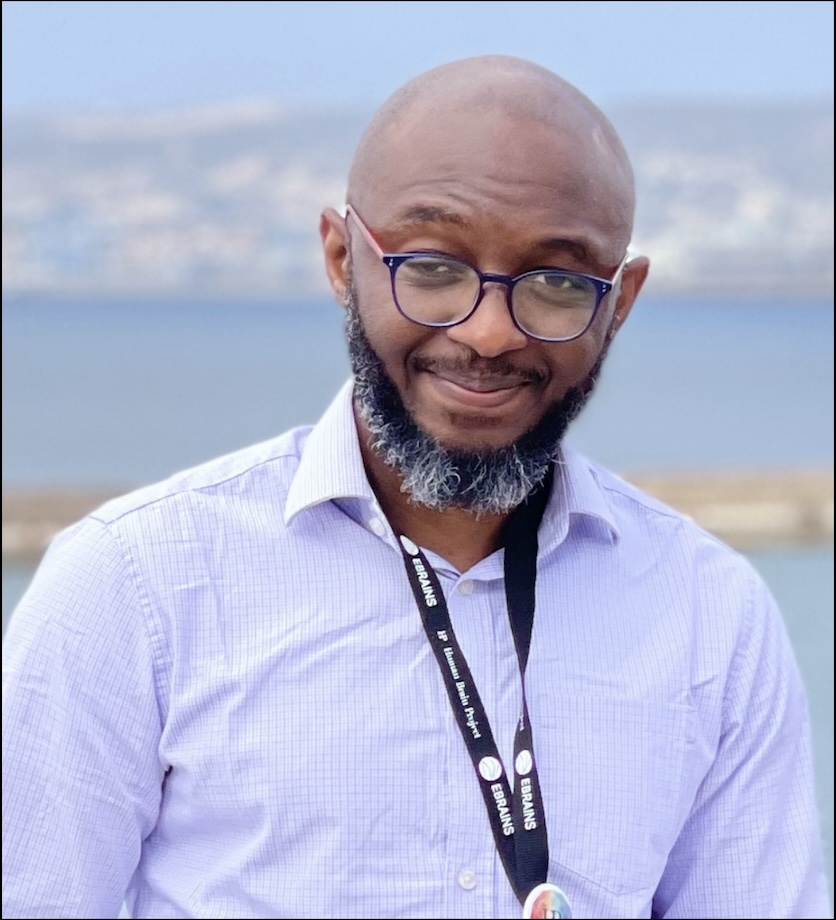
Dr. George Ogoh, Senior Research Fellow at the School of Computer Science, University of Nottingham
His research explores the ethical and societal implications of emerging technologies, with a focus on digital responsibility and Responsible Research and Innovation (RRI)/Responsible Innovation. He is particularly interested in embedding ethical considerations into the development, deployment, and use of technology to promote fairness, accountability, and societal benefit.
His broader research interests include public involvement and engagement in technology governance, anticipatory ethics for emerging innovations, and advancing diversity, equity, and inclusion in digital ecosystems. He also has expertise in data governance and protection, contributing to discussions on responsible data use and ethical AI.
12:50 – LUNCH BREAK
Afternoon
14:00 –
Advancing innovative interventions for mental disorders using virtual reality and large language models (Prof. Mel Slater)

Prof. Mel Slater, Distinguished Professor, Department of Clinical Psychology, University of Barcelona, Barcelona, Spain
Mel Slater is a Distinguished Investigator at the University of Barcelona in the Institute of Neurosciences, and co-Director of the Event Lab (Experimental Virtual Environments for Neuroscience and Technology). He was previously Professor of Virtual Environments at University College London in the Department of Computer Science. He has been involved in research in virtual reality since the early 1990s, and has been first supervisor of 40 PhDs in graphics and virtual reality since 1989. He held a European Research Council Advanced Grant TRAVERSE 2009-2015 and has now a second Advanced Grant MoTIVE 2018-2023. He is a Research Award Winner of the Alexander von Humboldt Foundation in 2021, and was elected to the IEEE VGTC Virtual Reality Academy in 2022. He is Field Editor of Frontiers in Virtual Reality, and Chief Editor of the Human Behaviour in Virtual Reality section. His publications can be seen on http://publicationslist.org/melslater.
15:30 – COFFEE BREAK AND NETWORKING
16:00 – END OF DAY 2
For additional information, please contact:
Dr. Esther Hitchen (esther.hitchen[at]charite.de), Project Manager, Charite Universitätsmedizin – Berlin
Storage of registration data:
The registration data for this event is stored on servers located in Germany. Please note that this information will be stored until the day after the event and will then be deleted.
We would like to assure you that we process and protect your data in accordance with applicable data protection regulations. For questions and/or comments on the storage of registration data please contact us by using the following contact details:
concentris research management gmbh
Ludwigstr. 4
82256 Fürstenfeldbruck
Germany
Website: www.concentris.de
Email: contact[at]concentris.de
Phone number: +49 (0)8141 625 285 84

